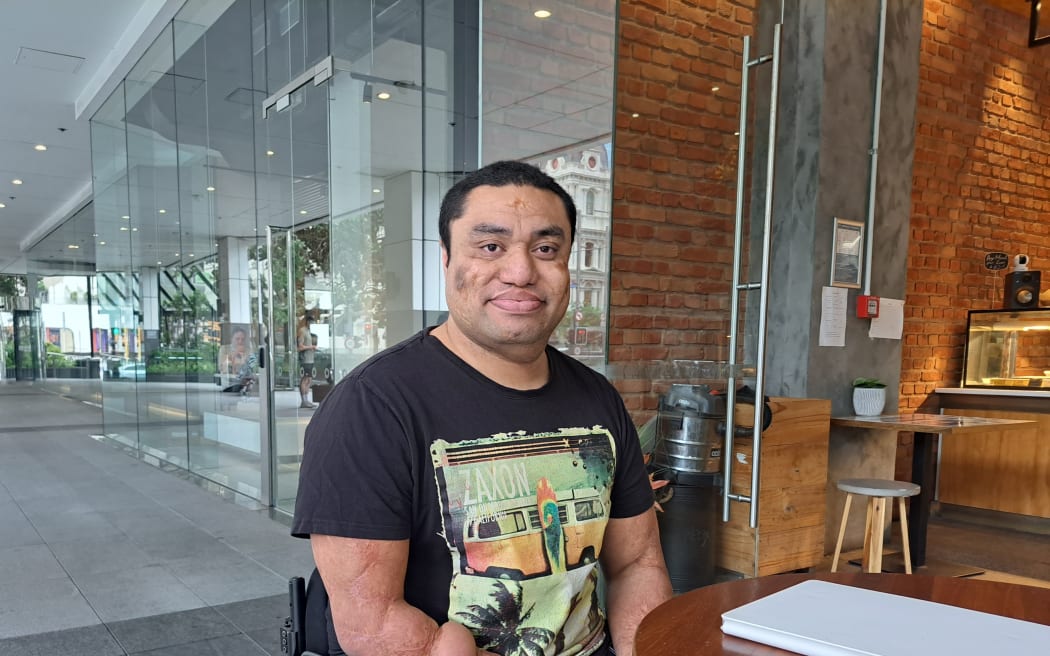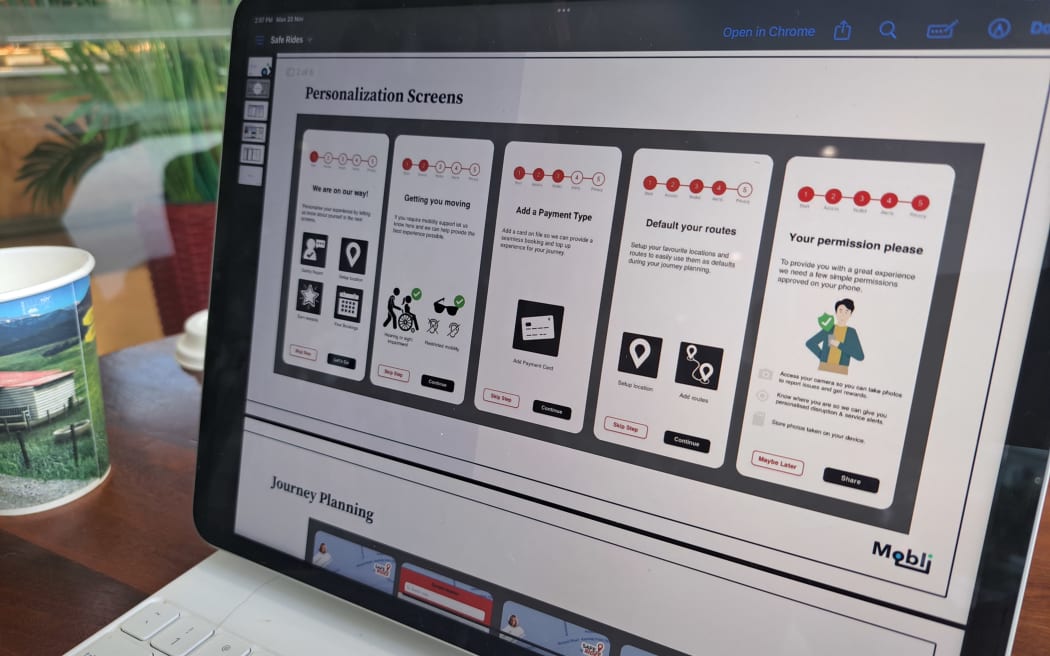
Wheelchair user Barney Koneferenisi Photo: RNZ / Luka Forman
Nearly $1 million set aside for fitting out wheelchair taxis is sitting unused, as the window to claim it draws near.
Taxi companies around the country had claimed just a quarter of the $1.2m fund and some operators said the funding model was leaving them out of pocket.
Meanwhile, wheelchair users said there was a shortage of accessible taxis, meaning they were sometimes left stranded.
Barney Koneferenisi is a wheelchair user with multiple limb amputations, and said he often found it difficult to get around.
When he first started studying at Manukau Institute of Technology in Auckland, he tried to call a taxi to get home after class, but had trouble getting one.
"I called [South Auckland taxis] for a wheelchair van and they told us they had none available. I went from South Auckland taxis to Re-Li-On-Us to Blue Bubble, literally list by list by list and they all told us there were none available."
Koneferenisi previously made a petition to Waka Kotahi on the issue, but did not feel there had been much progress.
Experiences like this one left him frustrated, he said.
"You feel useless at different times of the day. It demotivates you to go to an early class. You have to make excuses to your lecturer ... it's mentally draining."
Waka Kotahi NZ Transport allocates money that can be used to purchase and fit out wheelchair vehicles.
Regional councils decide how much they need each year, but three-quarters of the money for the current three-year window, which ends in June 2024, had not been touched.
In Hawke's Bay, for example, taxi companies had claimed just 22.4 percent of their allocation, while some regions had not claimed any at all.
Hawke's Bay Regional Council covers 60 percent of the fit-out cost.
But Hawke's Bay Combined Taxis general manager Wayne England said it was not enough to make it worthwhile.
"Most of the individuals [taxi operators] haven't got $30,000 or $40,000 sitting in their bank account."
The amount varied between regional councils, with some offering a flat fee, and some covering the full installation cost.
Ideally, his company would provide a 24/7 service for wheelchair users, but that would require more money, England said.
"I think any person or any person in a total mobility vehicle should have the right to move around. So they should be able to ring up and get a total mobility vehicle at 10pm because they've come home from the pictures, they've been out at a restaurant with the family."
Nelson City Taxis chair Graeme Page said it took a long time for a taxi operator to make back the money they spent on installing a wheelchair hoist.
He would like to see the whole cost covered by councils.
"Just recognition I think, more recognition into the investment that we have to make, so 100 percent back would be good."

Mockup of Barney Koneferenisi's app Safe Rides which is a work in progress. Photo: RNZ / Luka Forman
Koneferenisi got tired of waiting for the system to change, so he started working on his own app, called Safe Rides.
He initially planned to cater just to the disabled community, but decided that to make it profitable, he would need to have a broader appeal.
"We're trying to create an Uber-like service, so literally open to everyone, but having extra segments that cater to the underserved part of the community."
In a briefing to the incoming Transport Minister, the Small Passenger Service Association suggested the transport agency should mandate a certain amount of funding for fitting out vehicles across the country.
It said the subsidy should be set at a level which would encourage operators to invest in the service.


